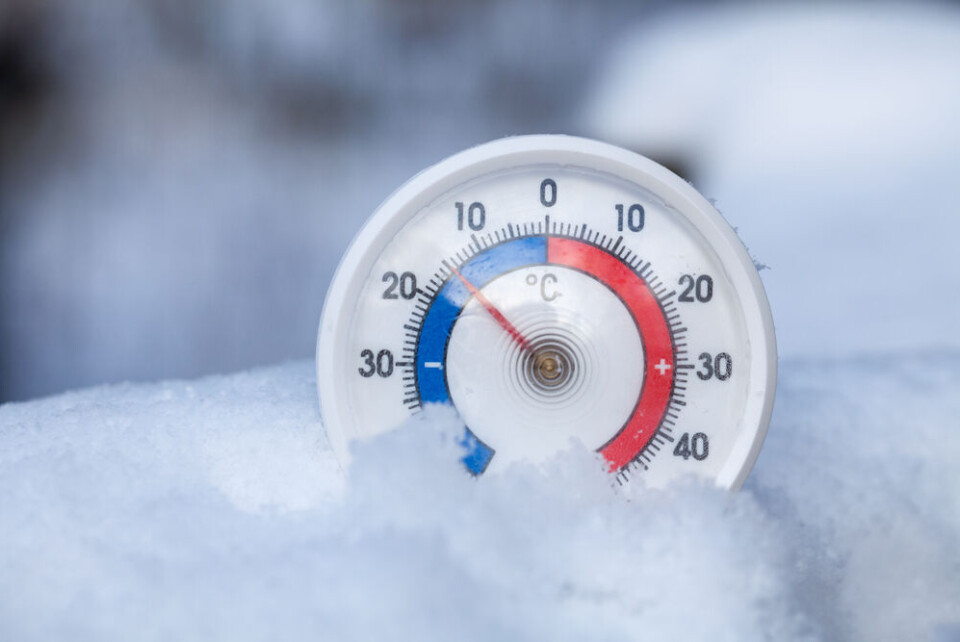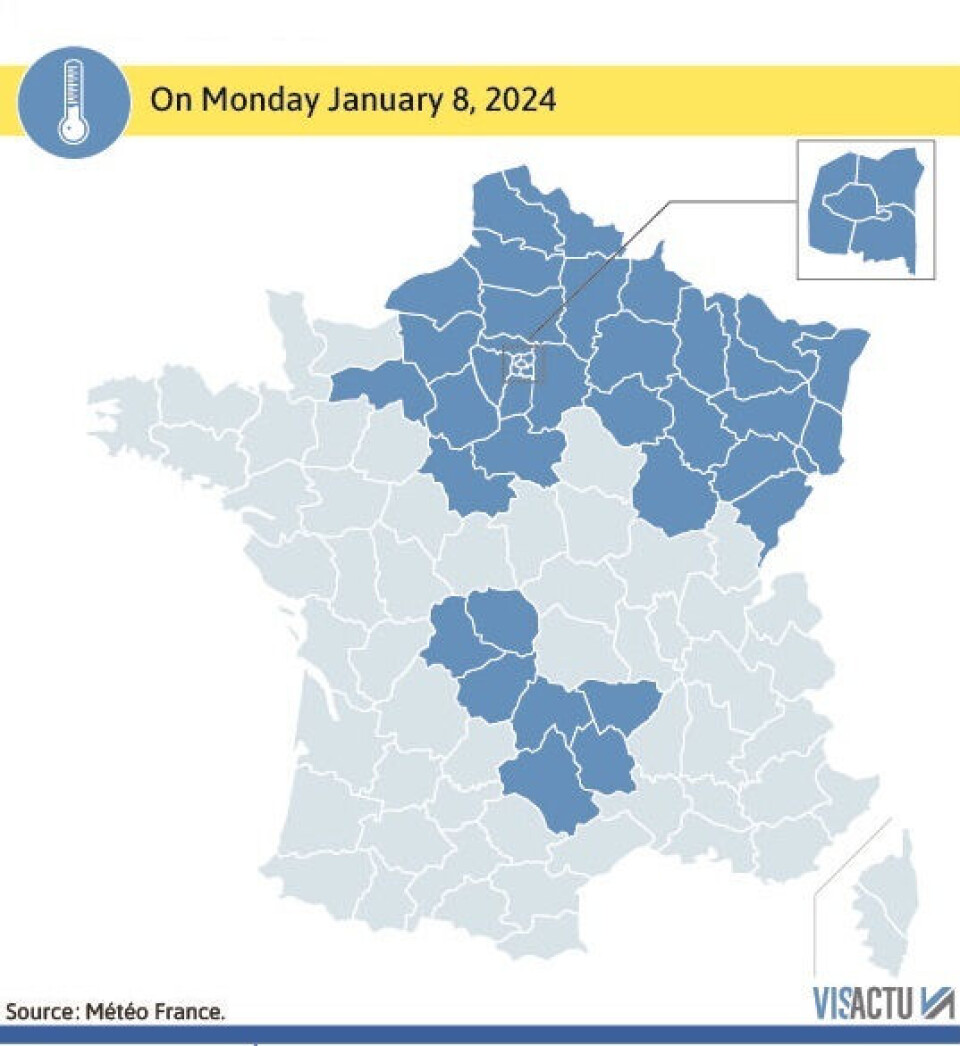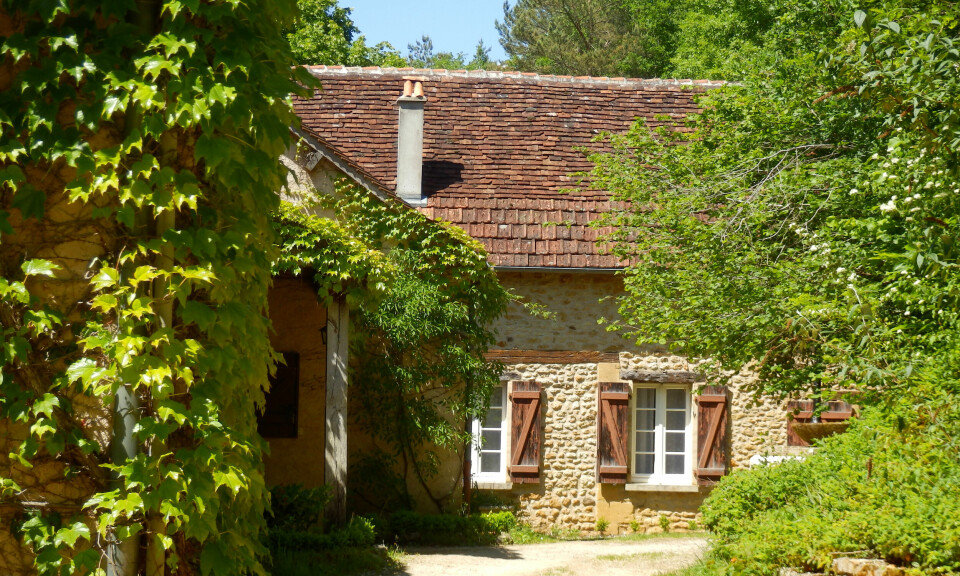-
Photos: Louis XIII-style château near Paris up for auction
The 400-year-old property has 32 hectares of parkland
-
Should France reduce the size of its baguettes to stop waste?
Would you welcome a smaller loaf?
-
Fatal HGV crashes: Goodyear in court in France over tyre defect claims
Investigators allege the firm knew about the problem but did not issue a recall
Cold spell in France: what is the forecast for week ahead?
Temperatures set to reach -15C in some places as many areas activate emergency ‘cold plan’

The vast majority of France will face a cold spell for much of the week as polar winds from northern Europe bring a drastic temperature drop.
Average temperatures have already fallen by around 10C since Friday (January 5), after a mild end to 2023 saw temperatures warmer than usual - and the mercury is set to fall even more throughout the week.
With the exception of the far south-east, almost the entirety of France will see temperatures of 0C or colder tomorrow Tuesday (January 9).
This includes cities as far south as Toulouse (-2C) and Perpignan (-1C).
Some smaller towns could see temperatures of -10C, and in certain ‘cold spots’ such as the bottom of valleys near the Alps, Météo France predicts temperatures of -15C.
Meteorologists forecast Tuesday as the coldest day of the week, but say below-zero temperatures will persist in the north of France until Friday morning when a return to average temperatures is expected.
In the south, temperatures will rise to above 0C from Wednesday onwards.
Some areas facing the coldest weather, such as in the capital, are activating their grand froid emergency plans.
Similar to plan canicule authorisations in the summer, these are temporary measures aimed at helping those most vulnerable from the weather, such as homeless people or those with insufficient housing.
They include opening up places such as gymnasiums and schools as temporary shelters and increasing funding to outreach programmes and the 115 emergency social services number.
‘As cold in Nancy as in Montauban’
This cold snap in particular is different from some of the other weather phenomena experienced in France recently because it is affecting almost the entire country.
Nice and some surrounding towns will be the only places registering temperatures at their seasonal averages, and almost everywhere outside of the Mediterranean coastline will see temperatures drop below 0C at some point in the day.
This is exemplified by Nancy – a town in the Grand-Est region, typically viewed as one of the coldest in France – and Montauban, close to Toulouse, both being ‘around -5C to -6C’ on Tuesday based on Météo France’s predictions.
In the capital, it will be -2C on Tuesday, and -1C until the end of the week.
The national heat indicator (indicateur thermique national), which measures the average temperature in over 30 towns in France, is set to fall to -0.8C at the beginning of the week, and could drop further.
It is the first time in six years the average national temperature in France will be below 0C.
Temperatures will be up to 8C colder than average in some towns.
Read more: Duck Cold! French phrases to use for chilly weather
Grand Froid plan in full swing
The cold weather has seen a flurry of departments activate ‘grand froid’ plans, to protect the most vulnerable during the height of the cold weather.
As of Monday January 8, 40 departments have activated the plans, which you can see below.

Credit: VisActu / The Connexion
These areas have all activated the first of three possible tiers of the grand froid plan.
They will reach the highest red alert if overnight temperatures remain at -18C, although this is not set to happen during the current cold weather.
However, some areas may increase their grand froid plan to level two if temperatures are extremely cold on Tuesday.
You can keep up to date with which departments have initiated a grand froid plan on the official Météo France website, where the information is displayed alongside weather warnings.
In addition to warnings over cold temperatures (including icy driving conditions), the Nord and Pas-de-Calais departments have remained at a tier-three orange warning for river flooding.
In the capital, over 270 temporary accommodation places for vulnerable men, women, and children were made available, in a bid to prevent people sleeping outside or in uninsulated houses during the freezing weekend weather.
Alongside the help with temporary accommodation, some departments are also increasing the level of access to emergency services.
In some areas, this includes increased resources for on-ground support workers and homeless charities, as well as increasing the number of respondents of the 115 emergency social services number.
Related articles
France set for below-normal cold spell: How is government preparing?
























